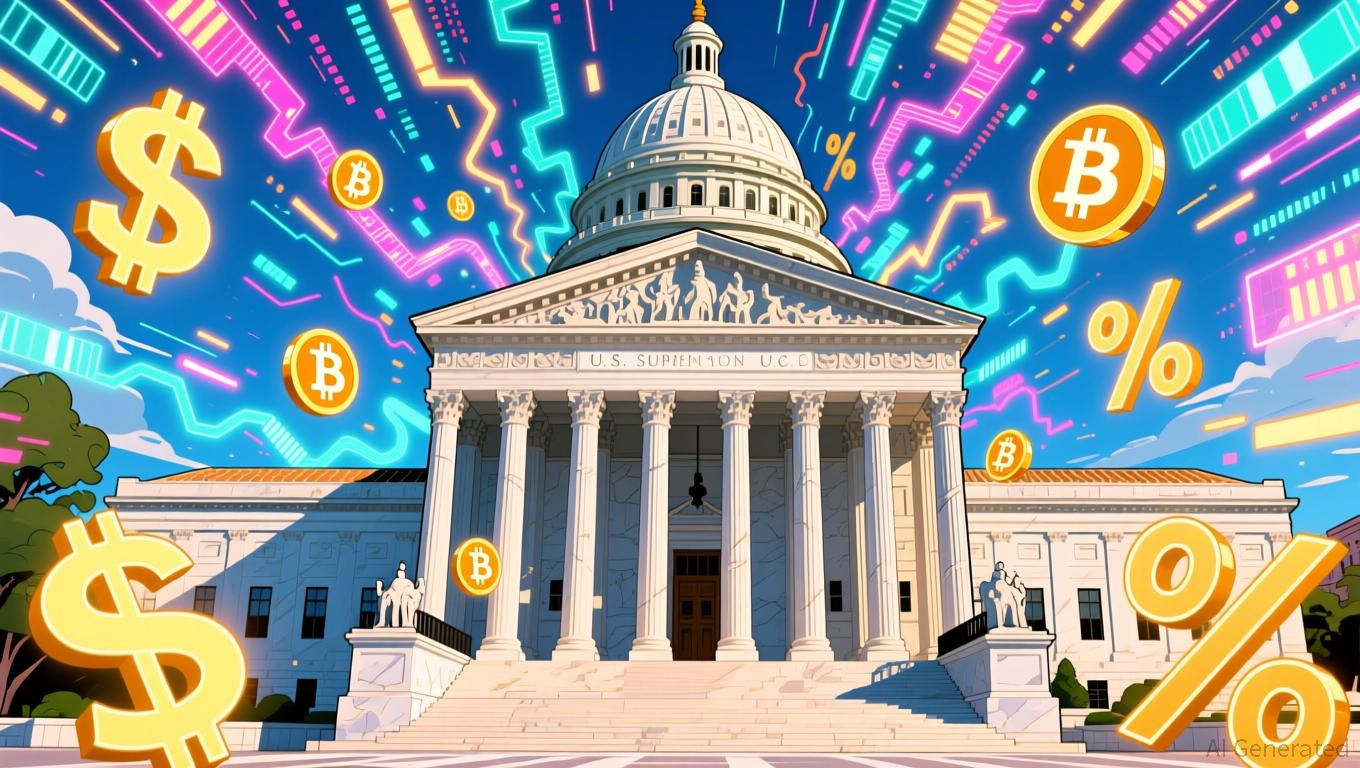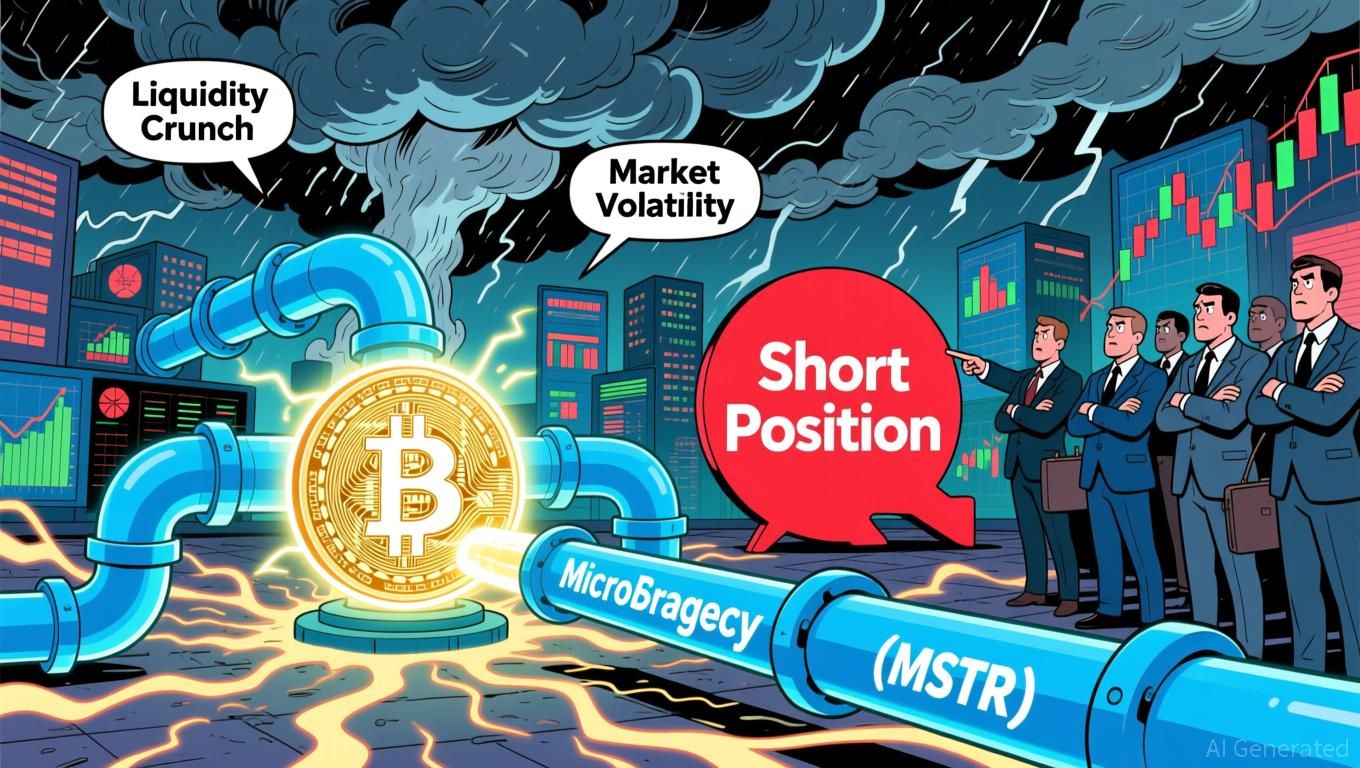Court Decision on IEEPA May Transform Tariff Policies and Cryptocurrency Rules
- U.S. Supreme Court's IEEPA ruling could invalidate Trump-era tariffs, forcing White House to adopt narrower legal tools like Sections 232/301 with slower processes and oversight. - Crypto markets face regulatory shifts as White House reviews CARF framework, which would grant IRS access to foreign crypto data but risks stifling decentralized innovation. - Over 65 crypto groups demand exemptions for decentralized developers amid concerns about prosecution risks and unclear DeFi tax rules under proposed reg
Crypto Markets Prepare for Volatility as White House Considers Tariff Alternatives During Supreme Court Deliberation
The impending Supreme Court ruling on whether the Trump administration’s use of the International Emergency Economic Powers Act (IEEPA) to impose tariffs was lawful has unsettled financial markets, with
IEEPA, a law from the 1970s that empowers presidents to declare national emergencies, has served as the

Meanwhile, the crypto industry is on alert for regulatory changes as the White House evaluates Treasury’s proposal to join the global Crypto-Asset Reporting Framework (CARF).
The intersection of trade and crypto regulation highlights broader risks for the regulatory environment. A Supreme Court decision against IEEPA could delay tariff repayments, extending economic instability and possibly affecting the Federal Reserve’s schedule for lowering interest rates. At the same time, crypto markets are responding to the administration’s simultaneous focus on tariffs and digital asset rules, as investors assess the consequences of increased regulatory oversight. With the court’s verdict approaching, both businesses and investors must navigate a landscape where changes in trade or crypto policy could have global ripple effects.
Disclaimer: The content of this article solely reflects the author's opinion and does not represent the platform in any capacity. This article is not intended to serve as a reference for making investment decisions.
You may also like
Bitcoin Updates: Hybrid Investment Strategies Drive Surge in Bitcoin Purchases Amid Ongoing Market Slump
- Cardone Capital buys 185 BTC for $15. 3M at $82,500/coin, expanding its real estate-crypto hybrid portfolio amid crypto market weakness. - Bitcoin falls below $90K for first time in seven months as U.S. ETFs lose $3.79B in November outflows, with BlackRock's IBIT accounting for 63%. - Grant Cardone's hybrid model contrasts with pure-play crypto treasuries, using real estate cash flow to fund Bitcoin accumulation and claiming $125M in year-one EBITDA. - Market fears a prolonged bear market as Bitcoin drop

Bitcoin Updates Today: The Future of Bitcoin in 2026 Hinges on Federal Reserve's Actions on Inflation
- Bitcoin's 2026 recovery depends on Fed inflation policy linked to CPI, PPI, and PCE metrics. - Persistent CPI/PCE inflation above 2% delays rate cuts, increasing Bitcoin's opportunity cost as non-yielding asset. - PPI input cost trends influence manufacturing pricing, prolonging inflation risks for Bitcoin's bearish environment. - PCE's alignment with consumer behavior shifts could accelerate Fed rate cuts, boosting Bitcoin's appeal as monetary easing hedge. - Housing/energy inflation volatility and Fed

Bitcoin Updates: MSTR Takes on Crypto Hedging Burden, Revealing Weaknesses in the Market

Bitcoin ATM Firm Weighing $100 Million Sale Following Money Laundering Charges